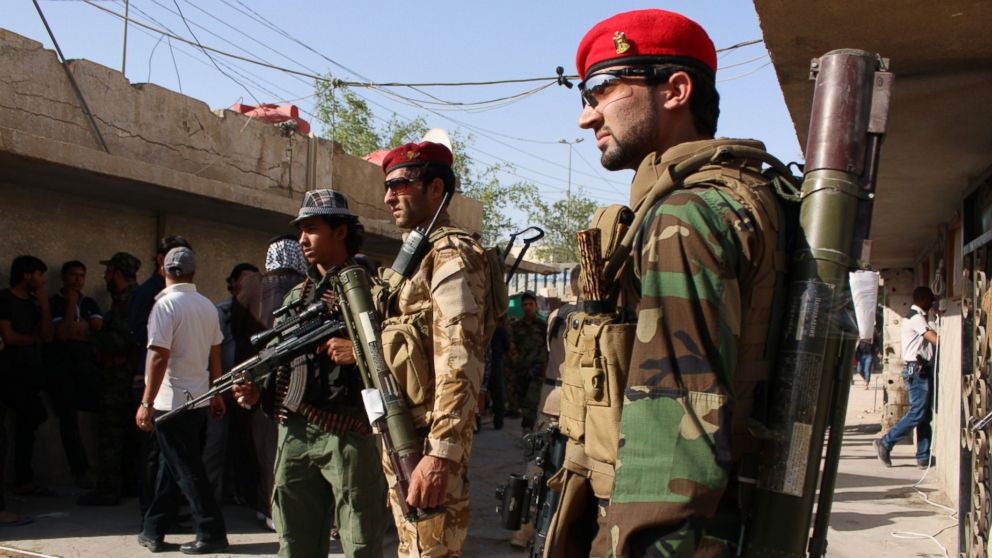What Happens If US Troops Run Into the Iranian Military in Iraq?
Official: Low-level U.S.-Iranian interaction "unlikely, hypothetical" scenario.

June 20, 2014 — -- On the heels of President Obama’s announcement that up to 300 U.S. military advisers will be sent to Iraq to help combat the threat from a Sunni terror group, an awkward question was raised: What happens if the U.S. troops, many of them Special Forces, run into Iranian soldiers who are reportedly already in Iraq in numbers?
The question was first posed to ABC News Thursday, shortly after President Obama’s announcement, by a former member of U.S. special operations who knows some of the men on their way to Iraq. The former soldier said he was concerned the U.S. troops at the ground level may not have been given guidance from higher up for that specific possibility. White House National Security Council representatives and a Defense Department official did little to ease that concern in conversations with ABC News Thursday evening.
Sources: Troops Surrounded, Trapped in Iraq's Key Refinery
Top Shiite Cleric Calls for New Government in Iraq
The Wall Street Journal first reported last week that Shiite-dominated Iran had deployed units from its powerful Revolutionary Guard to Iraq to help protect Baghdad and holy Shiite sites, citing Iranian security officials. Early this week, the paper reported a member of Iran’s elite Quds Force had purportedly died fighting there. Top Iranian officials, including President Rouhani, have strongly denied they have forces in Iraq, but in a lengthy email exchange with ABC News, the representatives of the U.S. National Security Council and the Pentagon did not question the Iranian military’s presence there. If there are Iranian troops in Iraq, what happens if U.S. soldiers find themselves face-to-face with troops from the nation President Obama's predecessor once put squarely in the "axis of evil"?
When asked directly if the soldiers on their way to Iraq had been given specific guidance, NSC staffer Bernadette Meehan told ABC News, “We have been clear about the role of any U.S. personnel in Iraq. We have also been clear about any possible interaction with Iran on the topic of Iraq.”
Secretary of State John Kerry said Monday the U.S. is “open to discussions” with the Iranians concerning Iraq’s security “that could minimize the violence, hold Iraq together, the integrity of the country, and eliminate the presence of outside terrorist forces.” President Obama said Thursday Iran could play a constructive role in Iraq, as long as it does not come in only as an armed force backing the Shiite-led government.
However, the same day as Kerry’s statement, Pentagon spokesperson Rear Admiral John Kirby told reporters there are no plans to coordinate military activities with Iran in Iraq.
Meehan didn’t say if any of the high-level statements translated to orders for the few soldiers actually putting boots on the ground, and instead deferred to the Defense Department. In a subsequent interview, a Defense Department official told ABC News that Kirby’s statement reflected U.S. military policy from top officials to the very bottom.
“The Department of Defense does not have any direct engagement with Iranian forces of any kind,” said the official, adding that any potential coordination with the Iranians would come from the State Department, presumably well above the pay grades of the men on the ground.
Like Meehan, however, the official declined to say whether the policy translated into actual orders about what American troops should do if they ran into Iranian troops, beyond saying that in the “unlikely, hypothetical scenario” all U.S. government employees have “very clear guidelines… on possible interactions with Iranian government officials.”




